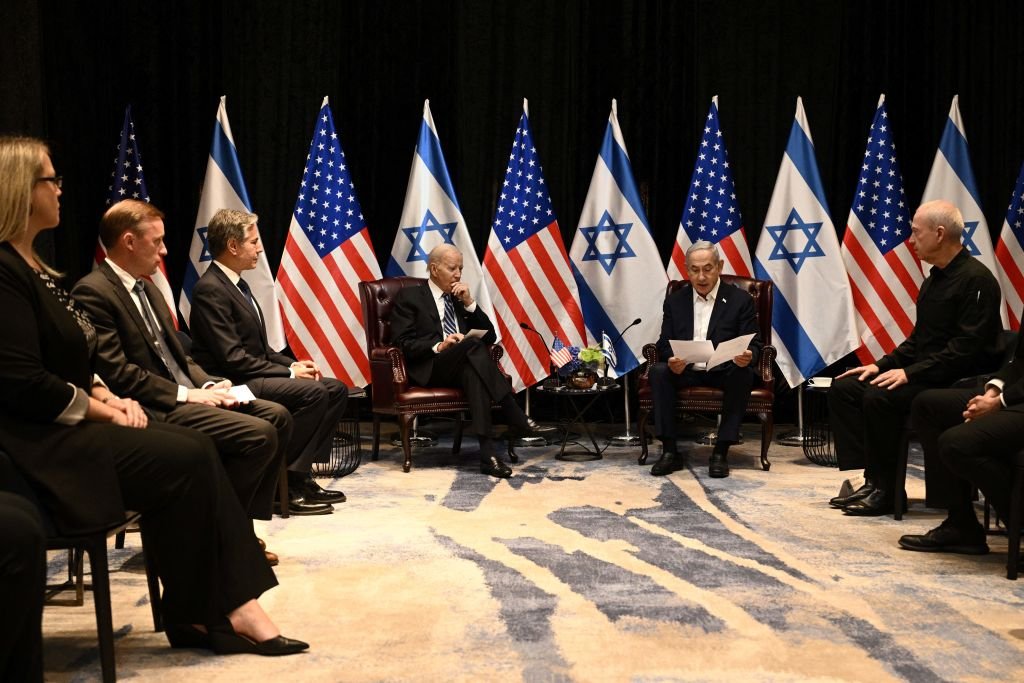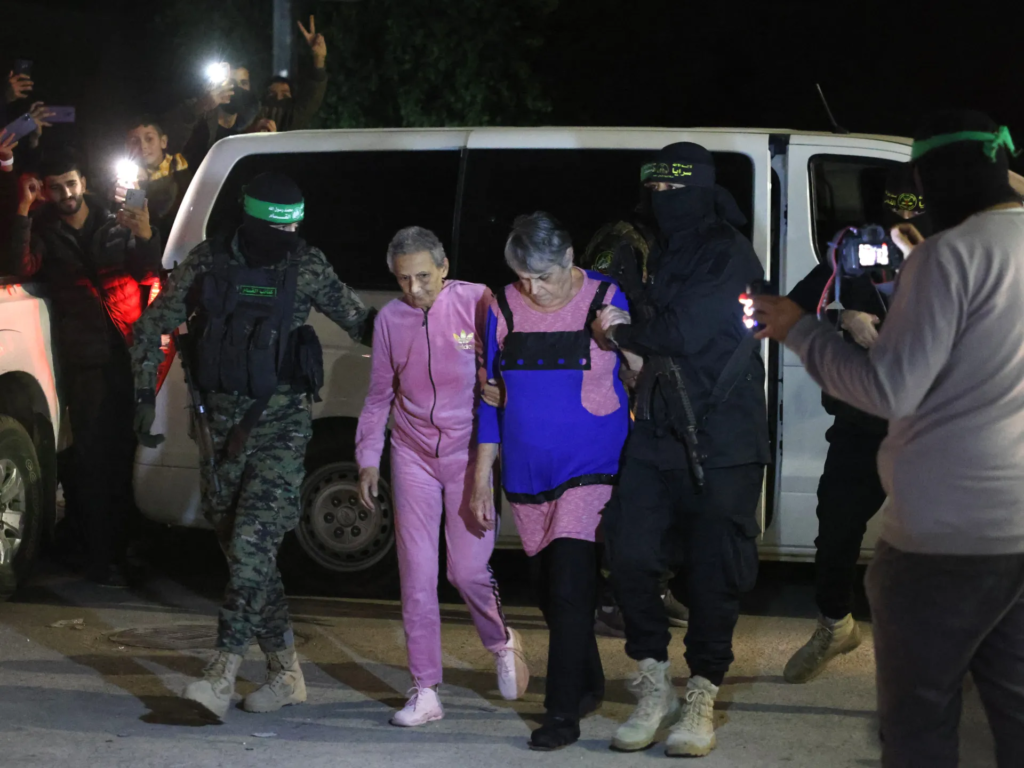As the violence in Gaza intensifies, US President Joe Biden has continued to argue that Hamas’s refusal to release hostages is the main obstacle to peace. “There would be a ceasefire tomorrow if Hamas would release the hostages,” Biden remarked at a recent Seattle fundraiser. National Security Advisor Jake Sullivan echoed this sentiment, asserting, “The world should be urging Hamas to negotiate.” Yet, the facts reveal a different narrative: Israel blocked a ceasefire agreement that Hamas had accepted, prioritizing military objectives over the hostages’ safety.
Just days before the stalled negotiations, Israel launched a bombing campaign on Rafah, claiming a need for an incursion regardless of whether a deal was reached. Israeli Prime Minister Benjamin Netanyahu himself had already indicated that the operation would proceed “with or without” an agreement. This framing of Israel’s actions suggests that the hostages are being used as a pretext rather than a true priority. In reality, Israel’s focus appears more on furthering its military goals in Gaza than on saving the lives of its citizens held by Hamas.

Hostages as a Political Tool
Both Biden and Netanyahu’s rhetoric focuses heavily on Hamas’s “obstruction,” portraying the group as the only barrier to peace. Yet families of the hostages have repeatedly pleaded with Israel to prioritize negotiation over military action. They see a prisoner exchange as the most viable path to securing their loved ones’ release, a position that has been consistently dismissed by Israeli officials in favor of an aggressive military approach.
In fact, Hamas has offered multiple times to exchange the hostages for Palestinian prisoners, including on October 7 and October 9, but Israel has declined these offers. The situation reveals a troubling reality: the political leaders of Israel and the US seem more committed to their military campaigns than to the welfare of those held captive. The latest assault on Rafah was described by Netanyahu as a way to “apply military pressure on Hamas,” though the risks to the hostages in such operations have been well-documented.
The Cost of Hostage “Rescues”
Outside of temporary ceasefires, Israeli forces have managed to free only a small number of hostages. In contrast, these operations have led to significant casualties among those they claim to protect. During one such incident, Israeli troops killed three hostages while they were attempting to surrender, waving a white flag to signal their intent. Despite these losses, Israel’s strategy remains unchanged, even as Hamas continues to release hostages in exchange for Palestinian prisoners during negotiated ceasefires.
Hamas’s stance is straightforward: the hostages were taken to press for a prisoner exchange, particularly for Palestinians detained under Israel’s controversial administrative detention policy. This policy allows for indefinite detention without trial, often based on classified evidence not disclosed to detainees or their legal representatives.As of now, Israel holds thousands of Palestinians in this manner, effectively making them hostages within a system that disregards due process.

A History of Hostage Negotiations Ignored
The idea of a prisoner exchange is not without precedent. Israel has a long history of conducting such exchanges, including deals with groups like Hamas and Hezbollah. In 2011, for instance, Israel released over a thousand Palestinian prisoners in exchange for a single captured Israeli soldier. But recent rhetoric from Netanyahu dismisses similar proposals as “ridiculous,” despite the clear precedent and the likelihood that such an exchange could secure the hostages’ safe return.
Of the hostages released in the November ceasefire agreement, a significant number were held without charges under administrative detention. A recent investigation found that 80 percent of these detainees had not been convicted of any crime. Many were held as a form of “preventative” detention, making the concept of hostages in this conflict far more complex than Netanyahu and Biden’s narratives suggest.
The Strategic Use of Hostages in War Rhetoric
By framing Israel’s ongoing military actions as a “hostage rescue” mission, the US and Israeli administrations create a narrative that justifies further destruction in Gaza. Netanyahu’s approach positions Israel as a reluctant savior, using force only as a last resort, but the reality is that these military tactics often endanger hostages rather than saving them. Meanwhile, the Biden administration’s support gives Israel diplomatic cover, enabling continued assaults under the guise of hostage recovery.
This narrative has allowed both governments to shield themselves from criticism, making the hostages seem secondary to the broader goal of maintaining control over Gaza. In doing so, Biden and Netanyahu turn a humanitarian crisis into a political tool, exploiting the plight of the hostages to justify actions that lead to further violence and suffering among Palestinian civilians.

A Call for Genuine Negotiation and Peace
The path to ending the hostage crisis lies not in military escalation but in genuine negotiation. For the hostages’ families, the best chance for their loved ones’ return has been through carefully brokered prisoner exchanges, a strategy that Israel and the US seem unwilling to pursue. Hamas’s willingness to negotiate stands in stark contrast to Israel’s use of hostages as a pretext for a war that many argue is not truly about freeing captives but about asserting dominance over Gaza.
In the end, the current strategy only perpetuates suffering on both sides. If Biden and Netanyahu genuinely prioritized the hostages’ return, they would focus on diplomatic solutions rather than military actions that threaten civilian lives.

